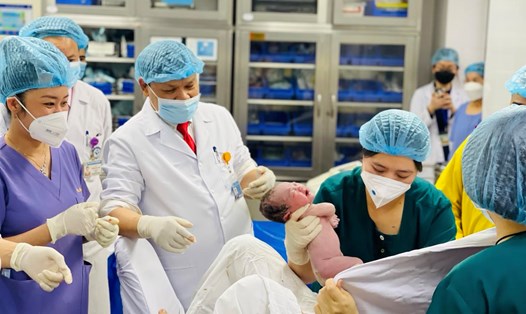Young people are lazy to get married
According to the General Statistics Office, the average age of first marriage nationwide in 2021 is 26.2 years old (0.5 years higher than in 2020); in 2022 it is 26.9 years old. Urban areas have a very late age of marriage. Typically, in Ho Chi Minh City, in 2022 the average age of first marriage is 29.8 years old.
The rate of single people is increasing rapidly from 6.23% in 2004 to 10.1% in 2019. One of the measures the Government has taken to address the low birth rate is to focus on encouraging young men and women not to marry late and not to have children late. However, more and more young people are delaying marriage to pursue their own priorities.
Dr. Nguyen Van Phuc, Department of Andrology - 108 Central Military Hospital, said that one of the main reasons why many people delay marriage is the priority given to education and career. The pursuit of advanced degrees and financial stability often causes young people to spend most of their time working and studying. The trend of living independently is increasingly popular, leading to marriage no longer being a top priority. In the past, early marriage was considered inevitable, but in modern society, late marriage is no longer stigmatized, and is even considered a smart choice.
And the consequences
Doctor Nguyen Van Phuc pointed out the consequences of late marriage, which is the impact on reproductive health. Fertility does not remain stable over time, but gradually decreases with age, especially in women.
In women: After the age of 35, the quantity and quality of eggs decline rapidly, reducing the rate of natural conception. In addition, the risk of miscarriage also increases due to the decline in egg cell quality. A study showed that women between the ages of 35-40 have twice the risk of miscarriage compared to women under 30.
In men: Although sperm are produced continuously, sperm quality also decreases with age. Sperm mobility decreases, while the rate of sperm with abnormal shape and structure increases. These factors significantly reduce the ability to conceive naturally, especially when the wife is also older.
Increased risk of reproductive diseases: Late marriage also means late childbirth, increasing the risk of diseases related to the reproductive system.
In women: Common conditions include endometriosis, polycystic ovary syndrome, and uterine fibroids. These conditions not only reduce fertility but also cause pain, seriously affecting quality of life. Additionally, older pregnant women are at higher risk of preeclampsia, gestational diabetes, or premature birth.
In men: Men who marry and have children late may face problems such as decreased testosterone levels, varicocele, or genital tract infections, which greatly affect fertility and overall health.
Risk of infertility and sterility: A serious consequence of late marriage is the increased risk of infertility and sterility.
Impact on the health of mother and child: Not only does it affect conception, late marriage and late childbirth also put the health of both mother and child at serious risk. For the mother: Advanced age makes it difficult for the mother's body to adapt to changes during pregnancy. Common complications include high blood pressure, preeclampsia, and a higher risk of cesarean section.
For babies: Children born to older parents are at higher risk of birth defects or genetic conditions such as Down syndrome. They are also more likely to be born prematurely or underweight, increasing the risk of long-term health problems in the future.
Mental pressure: Having children late not only puts pressure on the body but also strongly affects the psychology of parents. They often worry about their children's health, the economic pressure of raising children in middle age, and the feeling of being out of breath when having to accompany their children in later stages of development.











